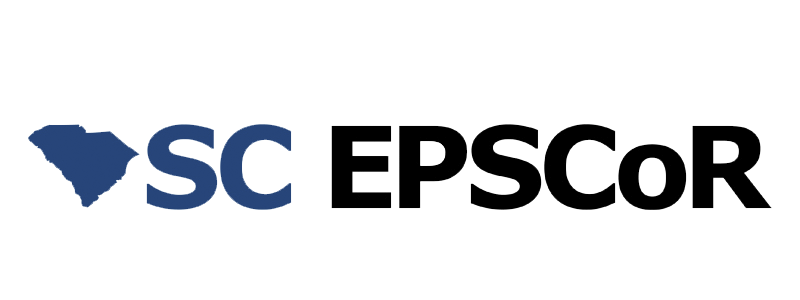- Home
- ADAPT in SC Overview
ADAPT in SC Overview

Vision
The vision of the ADAPT in SC project is to harness the power of artificial intelligence (AI) to improve public health in South Carolina.
Mission
The mission of ADAPT in SC is to build research capacity at the intersection of artificial intelligence (AI), life and social sciences, and bioengineering through fundamental research education, workforce development, and industry partnership.
Adapt will support the exploration of new AI technologies in healthcare applications and innovate advanced biomedical devices enabled by AI; educating and training a diverse, competitive AI workforce; establishing sustainable partnerships among academic, industrial, and healthcare institutions; developing novel approaches to broaden participation in STEM for the development of intelligent healthcare infrastructure; and Fostering formation of new paradigms for translating research outcomes to commercialization that catalyze economic development.
Overall Project Goals
The overarching goals of ADAPT in SC are to:
- Build jurisdictional research capacity in AI-enabled biomedical devices in strategically identified areas to facilitate SC’s healthcare system, thereby better serving Medically Underserved Areas (MUAs) and Primary Care Health Professional Shortage Areas (PCHPSAs),
- Accelerate a paradigm shift in the jurisdiction’s STEM workforce development through innovations in education and training to build human capacity in biomedical AI, and
- Foster interdisciplinary collaborations and academic–industrial partnerships by establishing integrated research, education, and technology-transfer programs in the jurisdiction.
Overview
Despite a recent surge in biomedical device development in SC, no smart (i.e., artificially intelligent) biomedical device has been developed by an SC company. ADAPT will address this gap by building the state’s capacity through (1) supporting statewide collaborations in AI research and medical device development, (2) hiring new faculty with appropriate expertise for translating AI technologies into development of biomedical devices, (3) training an AI+ (AI and medical device-related engineering and science) workforce from grade school through the Ph.D. level, and (4) translating research to industry through a mechanism that will establish industry partners via SCBIO. Thus, by establishing the state as a national exemplar in development of smart biomedical devices, ADAPT will support the priorities outlined in South Carolina Vision 2030.
The range of activities planned by ADAPT creates many opportunities for Primarily Undergraduate Institutions (PUIs) and Historically Black Colleges and Universities (HBCUs) to contribute to the statewide effort in research, education, and tech transfer. We encourage PUIs and HBCUs to become involved, for example, in the following areas:
- Exploring optimal methods for harnessing data to make them AI-ready. Acquiring and processing data to make them AI-ready and creating reduced-order or low-dimensional datasets for AI/machine learning (ML).
- Overseeing undergraduate researchers engaged in computational experiments supporting the design and implementation of AI/ML algorithms.
- Developing innovative educational and training programs in data science and ML that leverage the research projects. Developing these programs will help both faculty and students gain expertise in data analytics and ML. We appropriate, curricular innovations will be shared with the broader state and national community through pedagogical presentations and publications.
The ADAPT in SC research will address current challenges in the development of AI-enabled medical devices. Here, we use the broad definition of devices, including virtual devices such as DTs, in addition to conventional mechanoelectrical ones. The current challenges are: (1) how to extend explainable AI (XAI) theories to trustworthy and understandable AI-enabled diagnostic medical devices in practice and make personalized predictions, (2) how to establish new mechanistic and deep learning (DL) models to integrate information from multimodal data to ensure more effective design of a medical device, and (3) how to leverage existing data and models for like patients and further develop synthetic data to build digital twins (DTs) for personalized medical devices. Research projects addressing these three challenges are grouped into three synergistic thrusts. We will first focus on nine projects/devices at various prototype-development stages to initiate a substantial impact on the SC medical device industry. These projects are:
1.1 Biosensor for chronic wound healing diagnosis
1.2 ICU device for monitoring antibiotic administration
2.1 Tablet-based tools for treatment strategies for cardiovascular diseases
2.2 Endoscope for articular cartilage examination during treatment
2.3 Implantable devices to be used for treating myocardial infarction.
3.1 Sensory augmentation device for stroke patient rehabilitation
3.2 Multimodal wearable device with DT for personalized, multi-user rehabilitation
3.3 Multiscale, multimodal DT for optimized cancer recovery
3.4 Smartwatch-based eating pattern detection for monitoring energy intake

